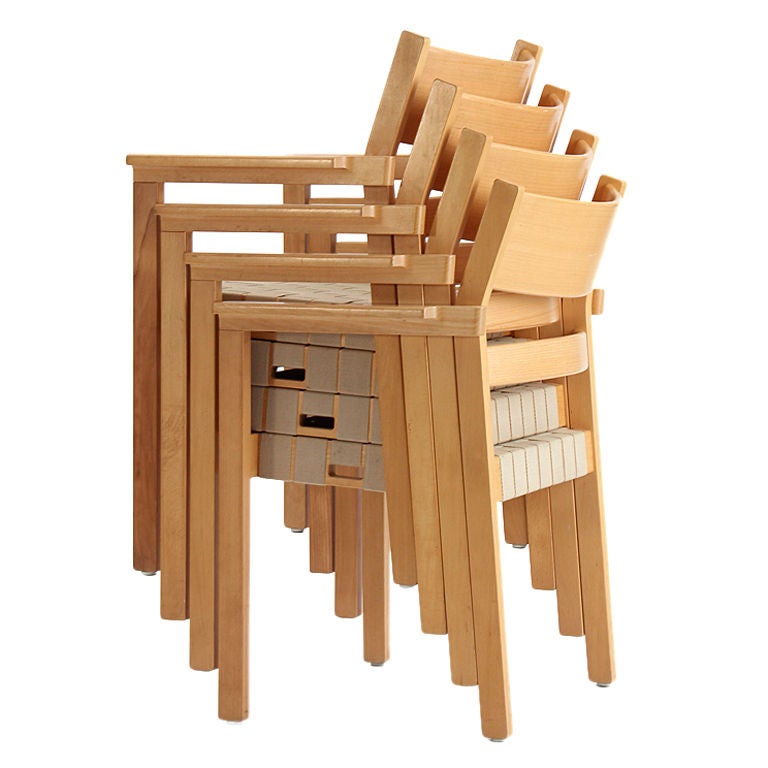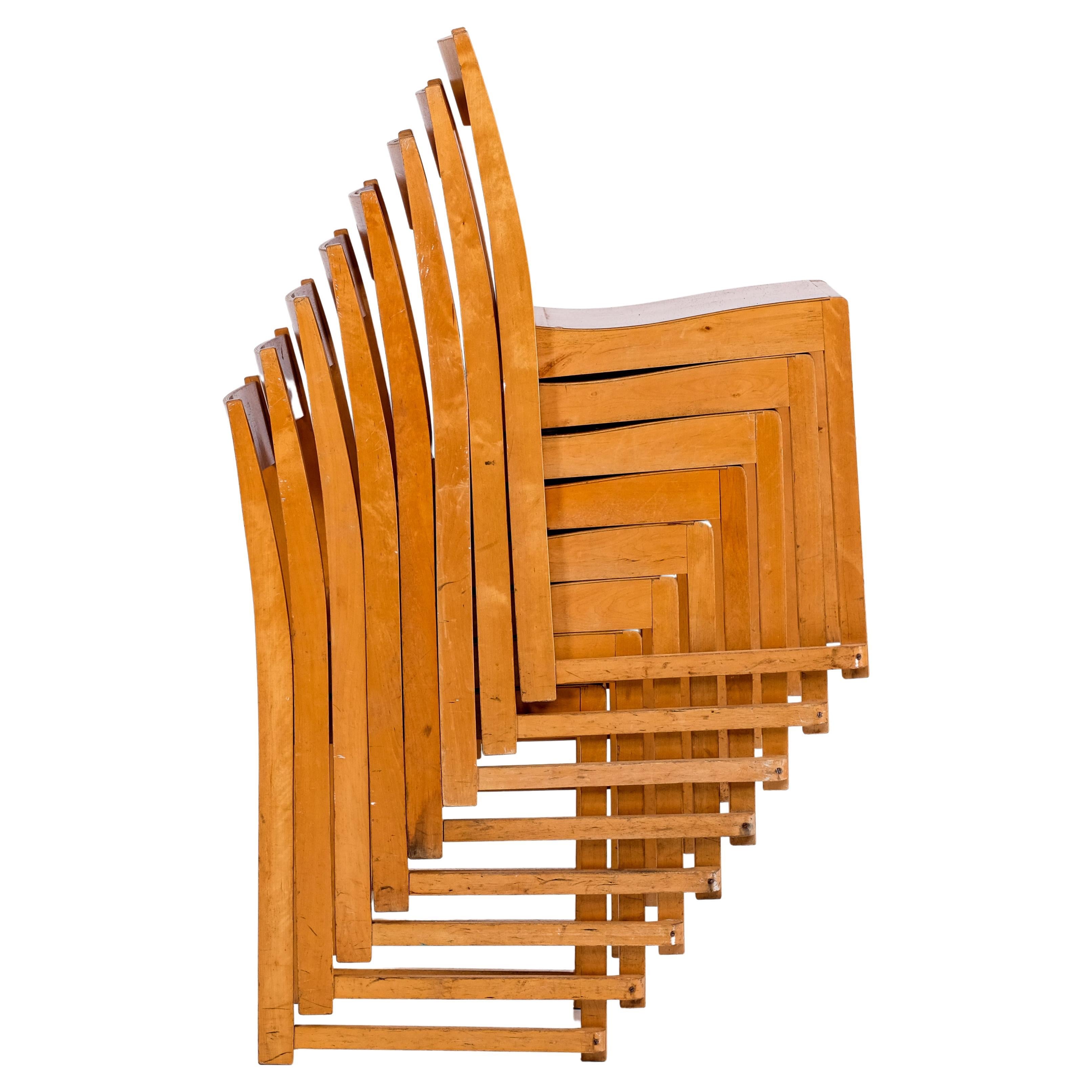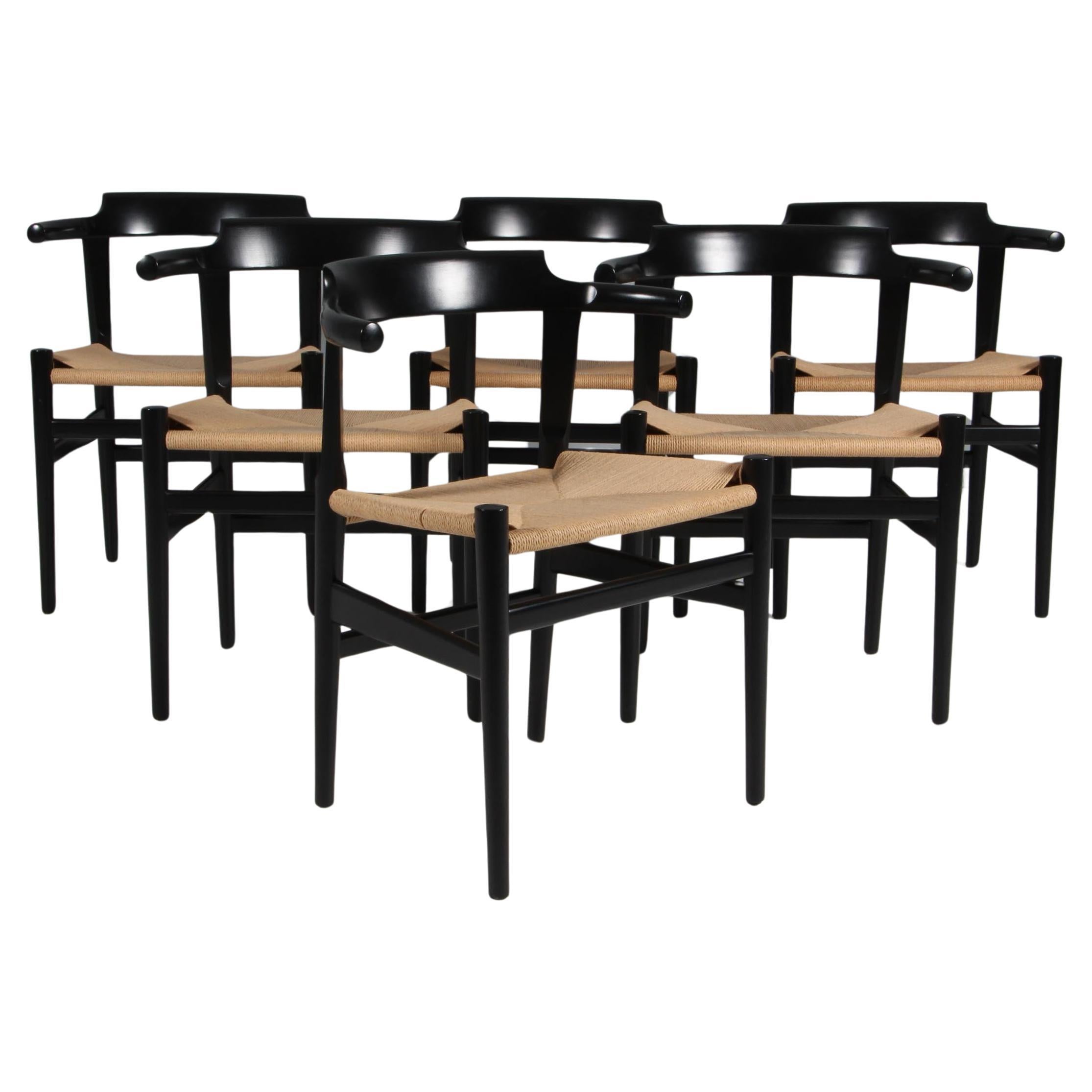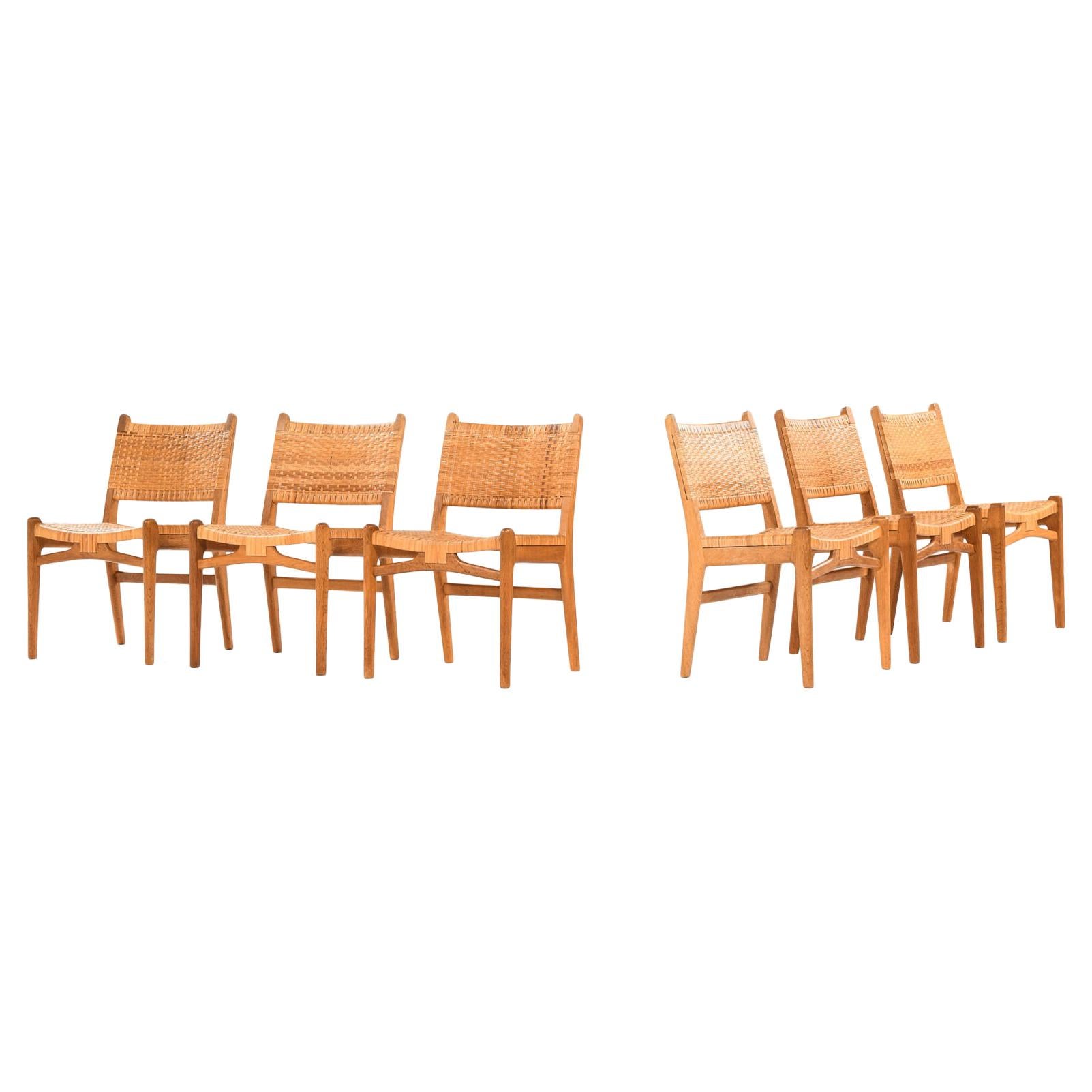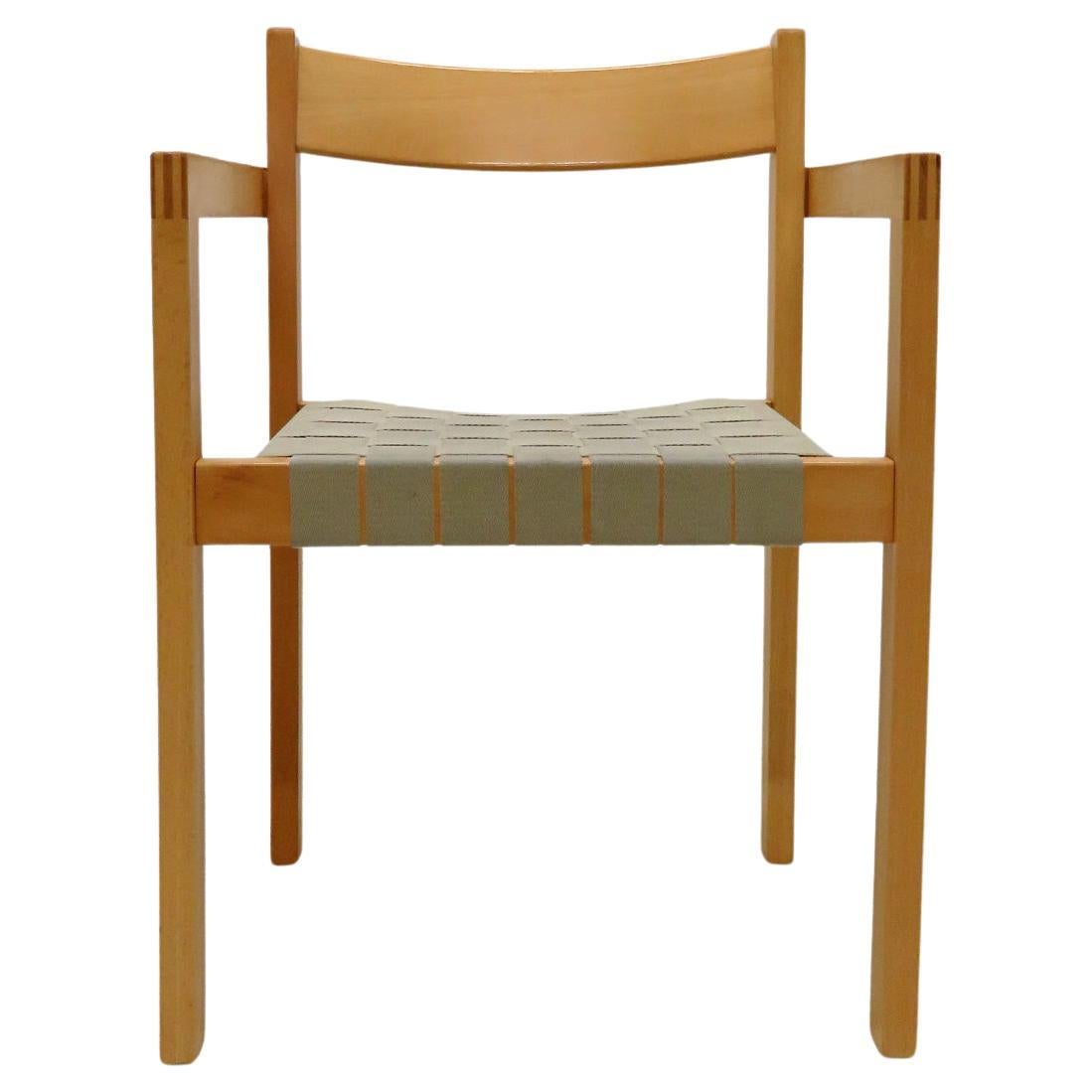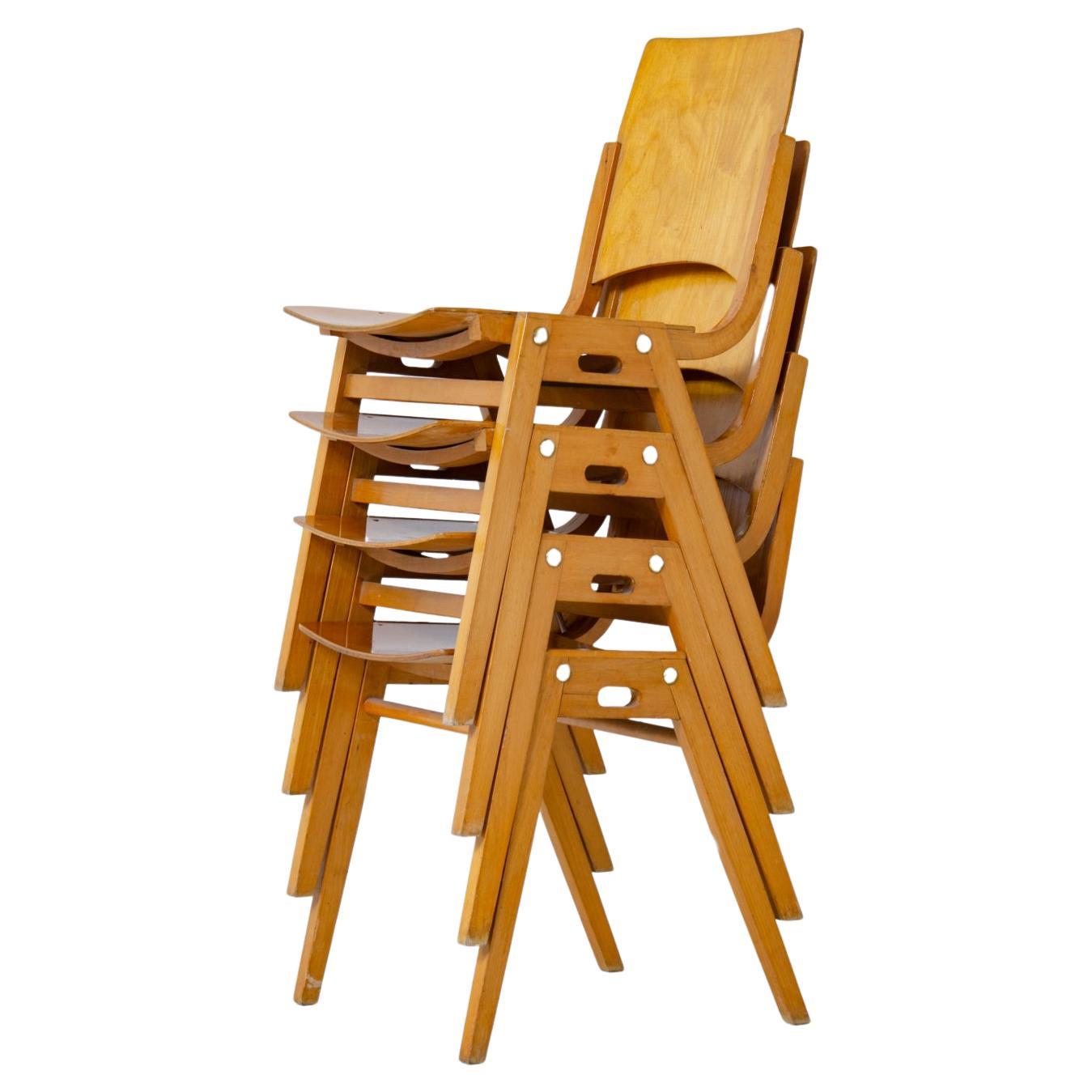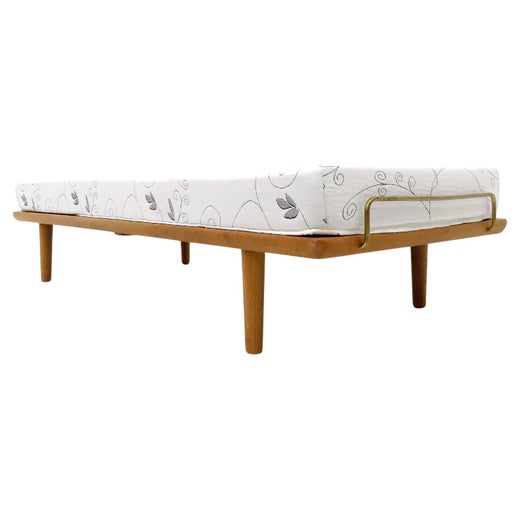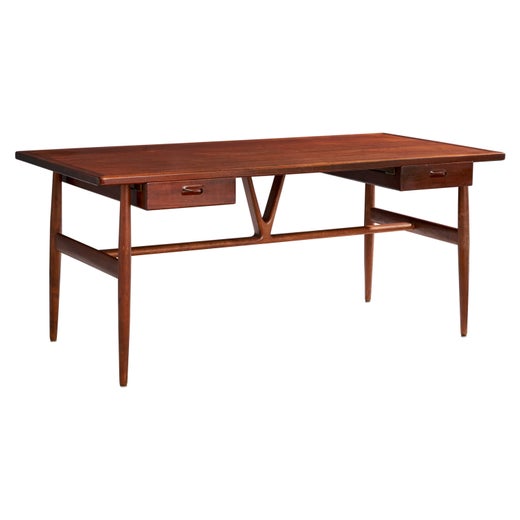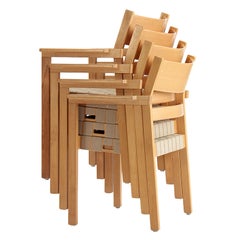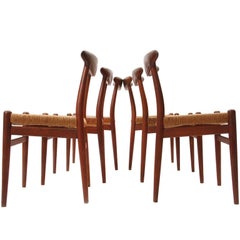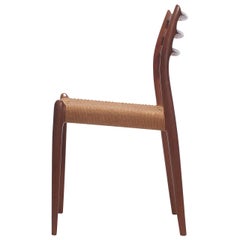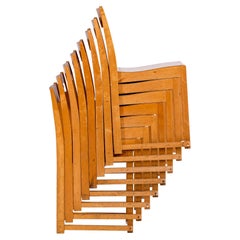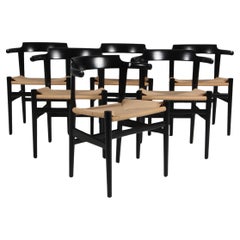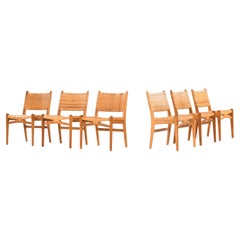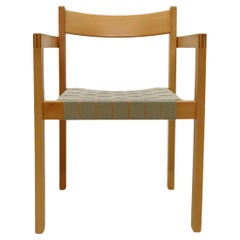A Set of Six Stacking Arm Chairs by Hans J. Wegner for Johannes Hansen
About the Item
- Creator:Johannes Hansen (Cabinetmaker),Hans J. Wegner (Designer)
- Dimensions:Height: 32 in (81.28 cm)Width: 18.5 in (46.99 cm)Depth: 24.5 in (62.23 cm)Seat Height: 17 in (43.18 cm)
- Sold As:Set of 6
- Style:Scandinavian Modern (Of the Period)
- Materials and Techniques:
- Place of Origin:
- Period:
- Date of Manufacture:1970s
- Condition:Wear consistent with age and use.
- Seller Location:Sagaponack, NY
- Reference Number:Seller: 7325.0011stDibs: U1109068903622
Hans J. Wegner
Best known for his chairs and other seating pieces — though a master of many furniture types like sofas and tables — Hans Wegner was a prolific designer whose elegant, often ebullient, forms and devotion to the finest methods in joinery made "Danish Modern" a popular byword for stylish, well-made furniture in the mid-20th century.
Wegner considered himself a carpenter first and a furniture designer second. Like his peers Arne Jacobsen and Finn Juhl, Wegner believed that striking aesthetics in furniture were based on a foundation of practicality: a chair must be comfortable and sturdy before it is chic.
In keeping with that tenet, several of Hans Wegner’s best chair designs have their roots in traditional seating forms. The Peacock chair (designed in 1947) is a throne-like adaptation of the Windsor chair; pieces from the China chair series (begun in 1944) as well as the 1949 Wishbone chair, with its distinctive Y-shaped back splat, are derived from 17th-century Ming seating pieces, as is the upholstered Ox chair (1960). Wegner’s comfy Papa Bear chair (1951) is an almost surreally re-scaled English wingback chair.
Wegner’s most representative piece, the Round chair (1949), gained a footnote in political history when it was used on the TV stage of the first Kennedy-Nixon debate of 1960. That chair, along with Wegner’s more bravura designs — for example, the 1963 Shell chair, with its curved surfboard-shaped seat — bring a quietly sculptural presence to a room.
Wegner was a designer who revered his primary material — wood — and it shows. His wood gathers patina and character with age; every Hans Wegner piece testifies to the life it has led.
Find vintage Hans Wegner lounge chairs, armchairs, daybeds and other furniture for sale on 1stDibs.
Johannes Hansen
Danish master cabinetmaker Johannes Hansen is best known for a celebrated partnership with legendary Scandinavian modernist designer Hans Wegner that lasted half a century. The sophisticated and sculptural chairs, tables and cabinets that Wegner designed and Hansen built earned Wegner worldwide acclaim, and brought meaningful business opportunities to Hansen and his modest workshop.
Hansen was born in 1886 and apprenticed as a cabinetmaker in his early years, opening a workshop and showroom in Copenhagen. In 1927, he helped establish the annual Copenhagen Cabinetmakers’ Guild Exhibition. Later, at the age of 55, Hansen began working with Danish furniture designer Hans J. Wegner, then only 26. With Wegner creating and Hansen executing on his partner’s complex designs, they developed furniture to sell in Hansen's showroom. A business relationship of this type was common in 20th-century Danish furniture making, and Hansen and Wegner enjoyed a prolific and renowned collaboration.
Wegner’s career began in cabinetry before he transitioned to furniture design in the 1940s. He is among the most celebrated figures for collectors of mid-century modern and Scandinavian works of the era. One of the first well-known entries for the Cabinetmakers’ Guild Exhibitions authored by Wegner and built by Hansen was the 1942 Lattice chair, a red Cuban mahogany dining room chair with an upholstered leather seat. The Peacock chair, an iconic design that followed in 1947, was the pair's take on a traditional English Windsor chair. It featured flattened spindles along the back resembling the feathers of a peacock tail — it wasn’t exactly an emblem of the pared-back functionality prioritized by Kaare Klint, Wegner’s former instructor at Copenhagen’s Royal Danish Academy of Fine Arts.
Wegner would go on to design nearly 500 chairs over the course of his life — among them are the Wishbone chair, the Papa Bear chair and the Round chair. The latter, which is often simply called “The Chair,” was manufactured by Hansen and made its debut at the Guild Exhibition in 1949. It was declared “the most beautiful chair in the world” by Interiors magazine a year later, and a pair of the iconic seats appeared on the first nationally televised presidential debate in the United States in 1960.
After Hansen died in 1961, his son, Poul Hansen, took over the business and continued working with Wegner. The company closed in the 1990s, but today, Hansen and Wegner's collaborative legacy endures in collections around the world.
Find vintage Johannes Hansen furniture on 1stDibs.
- ShippingRetrieving quote...Shipping from: Sagaponack, NY
- Return Policy
More From This Seller
View AllLate 20th Century Danish Scandinavian Modern Armchairs
Oak
Vintage 1960s Danish Scandinavian Modern Dining Room Chairs
Oak, Papercord
Vintage 1960s Danish Scandinavian Modern Dining Room Chairs
Seagrass, Teak
Vintage 1950s Danish Scandinavian Modern Side Chairs
Rosewood, Wool
Vintage 1950s Danish Mid-Century Modern Armchairs
Wood, Upholstery
Vintage 1960s Danish Scandinavian Modern Dining Room Chairs
Teak, Leather
You May Also Like
Vintage 1930s Swedish Scandinavian Modern Chairs
Birch
2010s Danish Scandinavian Modern Armchairs
Papercord
Vintage 1950s Danish Scandinavian Modern Dining Room Chairs
Cane, Oak
Vintage 1970s Danish Scandinavian Modern Side Chairs
Hemp, Oak
Mid-20th Century Austrian Mid-Century Modern Chairs
Wood
Mid-20th Century Mid-Century Modern Armchairs
Read More
The 21 Most Popular Mid-Century Modern Chairs
You know the designs, now get the stories about how they came to be.
Design Icon Ilse Crawford on Her Colorful New Hans Wegner Chairs
If anyone is brave, humble and adept enough to recolor these mid-century masterpieces, it’s Ilse Crawford. Here, she gives us the details on her five earthy paint choices and tells us how she feels about design collaborations.
